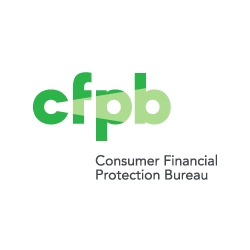

This post first appeared on the Securities Arbitration Alert blog. The blog’s editor-in-chief is George H. Friedman, Chairman of the Board of Directors for Arbitartion Resolution Services, Inc.
The Consumer Financial Protection Bureau (“CFPB”) on June 4 issued a circular warning on the use of deceptive terms in contracts for consumer financial products or services, with arbitration featured as a prime example.
Says the notice:
“Many federal laws—including statutes enforced by the CFPB—render unlawful or unenforceable various contract terms in certain contexts. For example … Regulation Z, which implements the Truth-in-Lending Act (TILA), prohibits the inclusion in a residential mortgage loan or open-ended consumer credit plan secured by the principal dwelling of terms requiring arbitration or any other nonjudicial procedure as the method for resolving any controversy or settling claims arising out of the transaction. … And the Military Lending Act and its implementing regulations generally prohibit terms in certain consumer credit contracts that require servicemembers and their dependents to ‘waive the covered borrower’s right to legal recourse under any otherwise applicable provision of State or Federal law. . . .[] In addition to express prohibitions like these, a recent federal district court decision [Espin v. Citibank, N.A., No. 5:22-CV-383-BO-RN, 2023 WL 6449909, at *3 (E.D.N.C. Sept. 29, 2023)] held that the Servicemembers Civil Relief Act (SCRA) renders unenforceable provisions in contracts with servicemembers that purport to waive their right to participate in class actions to enforce the SCRA. The Federal Trade Commission also administers laws that forbid certain contractual waivers. And certain state laws similarly prohibit or restrict the use of waivers in consumer contracts.” (footnotes omitted).
Drivers
The question presented was: “Can persons that include unlawful or unenforceable terms and conditions in contracts for consumer financial products and services violate the prohibition on deceptive acts or practices in the Consumer Financial Protection Act (CFPA)?” The summary response was:
“Yes. ‘Covered persons’ and ‘service providers’ must comply with the prohibition on deceptive acts or practices in the CFPA. The inclusion of certain terms in contracts for consumer financial products or services may violate the prohibition when applicable federal or state law renders such contractual terms, including those that purport to waive consumer rights, unlawful or unenforceable…. The CFPB is issuing this Circular to emphasize that covered persons who include unlawful or unenforceable terms in their consumer contracts may violate the CFPA’s prohibition on deceptive acts or practices” (footnote omitted).
Explanation
The circular explains:
“As these examples demonstrate, the inclusion of unlawful or unenforceable terms and conditions in consumer contracts is likely to mislead a reasonable consumer into believing that the terms are lawful and/or enforceable, when in fact they are not. Further, the representations made by the presence of such terms are often material, presumptively so when they are made expressly. In particular, consumers are unlikely to be aware of the existence of laws that render the terms or conditions at issue unlawful or unenforceable, so in the event of a dispute, they are likely to conclude they lawfully agreed to waive their legal rights or protections after reviewing the contract on their own or when covered persons point out the existence of these contractual terms and conditions. Deceptive acts and practices such as these pose risk to consumers, whose rights are undermined as a result, and distort markets to the disadvantage of covered persons who abide by the law by including only lawful terms and conditions in their consumer contracts.”
(ed: Of course, this stops short of an express arbitration clause ban.)






